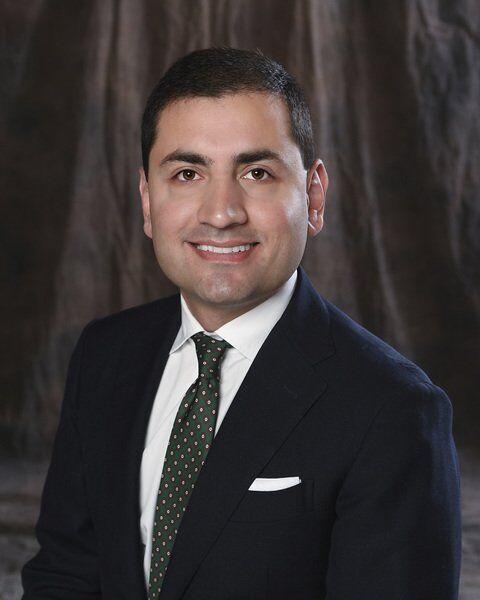Contents
What investment account can I open for my child?
Just like with a Custodial IRA, UGMA and UTMA accounts are opened in a child’s name and a custodian is appointed, usually a parent or grandparent. But you can choose anyone to manage the account. This may interest you : 4 Tax-Deductible Investments for Your Portfolio. The caretaker will have full control of the account until the child reaches a certain age.
Can I open an investment account in my child’s name? A custodial account allows adults to open an account for a minor with many options for investing the funds. … It is not possible to open an IRA account in a child’s name, however, a child can open one just as he or she starts earning taxable income.
What is the best investment plan for a child?
List of 8 best long-term investment plans for children in India 2021 This may interest you : What happens to taxes and payouts with an IRA in a trust?.
- Insurance plans for children.
- Gold ETFs / funds.
- Fixed Deposits (FD)
- Sukanya Samriddhi Account (SSA)
- Unit Linked Insurance Plan (ULIP)
- Post Office Savings Programs.
- Public pension fund (PPF)
- Stocks and mutual funds.
Can you lose money in a Roth IRA?
Yes, you can lose money on a Roth IRA. The most common causes of a loss include: negative market fluctuations, early withdrawal penalties, and insufficient time to compound. The good news is that the longer you allow a Roth IRA to grow, the less likely you are to lose money.
Is Roth IRA Risk Free? Observation. Clients should know that unlike a traditional IRA which provides some immediate benefit, the benefit of a Roth IRA may be zero. This may interest you : 4 Ways The Secure Act 2.0 Would Change Retirement Planning. The greatest risk of a Roth IRA, however, is that the present value of the prepaid tax may be greater than the present value of future tax savings.
Why a Roth IRA is a bad idea?
A key drawback to Roth IRA contributions are made with after-tax cash, meaning there is no tax deduction in the contribution year. Another drawback is that withdrawals must not be made before at least five years have elapsed from the first contribution.
Is a Roth IRA ever a bad idea?
A Roth IRA isn’t necessarily a bad idea if you’re eligible for an employer match through your company’s workplace retirement plan, but it’s not a great first choice. … You can contribute up to $ 19,500 to a 401 (k) in 2020 or $ 26,000 if you’re 50 or older, compared to just $ 6,000 and $ 7,000, respectively, for a Roth IRA.
Is a Roth IRA a good idea right now?
Roth IRAs are ideal retirement savings accounts if you are in a lower tax bracket than you expect to be during retirement. Millennials are poised to take full advantage of the tax benefits of a Roth IRA and decades of tax-free growth.
Is my money safe in a Roth IRA?
Your investments are safe up to those limits from any mismanagement by the broker, although market risks still apply to stocks, bonds, funds and other assets. The limit applies separately to all joint accounts an individual may have with a spouse, although Roth IRAs, by definition, can only be held by individuals.
Is a Roth IRA ever a bad idea?
A Roth IRA isn’t necessarily a bad idea if you’re eligible for an employer match through your company’s workplace retirement plan, but it’s not a great first choice. … You can contribute up to $ 19,500 to a 401 (k) in 2020 or $ 26,000 if you’re 50 or older, compared to just $ 6,000 and $ 7,000, respectively, for a Roth IRA.
Are ROTH IRAs safe from market crashes?
Likewise, if you invest all of your Roth IRA money in a single stock and that company goes bankrupt, it’s possible that you could lose all of your money. Even an adequately diversified equity portfolio can lose a significant portion of its value over a short period of time under adverse economic conditions.
Who can open a custodial account?
A custodial account is a financial account opened and controlled by a person over the age of 18 for a minor. Often a parent opens a custody account for their child. Grandparents, other family members, and even friends can also open a custody account for a minor.
Can an aunt open a custodial account? Benefits of a custodial account Anyone, whether it be a parent, grandparent, aunt or otherwise, can open a custodial account; that person can therefore contribute without any limit to the amount he has invested. You can choose to invest the money in any investment business offered by your bank.
Can an uncle open a custodial account?
Who can open a custodian account? Any adult, such as a parent, grandparent, aunt or uncle, can open a custodial account for a minor. Generally, only the custodian makes contributions to the custodian account.
Can you open a custodial account for your nephew?
You can open a custodial account for your minor granddaughter under the provisions of the Uniform Gift to Minors Act or the Uniform Transfer to Minors Act. The provisions of these acts vary slightly from state to state and different financial institutions may offer one or both the types of custodial accounts.
Can a non parent open a custodial account?
If you are under the age of 18 or 21, depending on the state, an adult can open a custodial account for you. The person who opens the account will manage it until they reach the age of majority, at which point it will be transferred to you and you will be responsible for managing it.
Can a grandparent open a custodial account?
Both allow parents to establish custody accounts for a minor child, and a grandparent can then give gifts to the account. … Banking institutions and brokerage firms offer UGMA and UTMA accounts.
Who can open a custodial account?
If you are under the age of 18 or 21, depending on the state, an adult can open a custodial account for you. The person who opens the account will manage it until they reach the age of majority, at which point it will be transferred to you and you will be responsible for managing it.
What kind of account can I open for my grandchild?
If you don’t want to invest specifically for college, you can open a brokerage account for the benefit of your grandson. These accounts are known as UTMA or UGMA accounts and allow you to keep control of them until your grandson reaches a certain age, usually 18 or 21.
Can grandparents open bank accounts for grandchildren?
As a grandfather, you can open a savings account in your grandchild’s name, as long as you have proof of his identity (such as a birth certificate). The interest your grandson earns on his savings may not be subject to tax if a grandfather gave them the money.
Can a friend open a custodial account?
Parents, guardians, friends and family can all deposit money into a child’s custody brokerage account. But only the person who opened the account (the custodian) can choose how to invest that money.
Can anyone open a custodial account?
Anyone – parents, relatives, friends – can deposit any amount of money into a custodial account. Due to gift tax laws, many limit contributions to $ 15,000 ($ 30,000 for married couples) per child per year. … Even if the child dies before reaching legal adulthood, the account is paid out as part of the child’s assets.
Can a non family member open a custodial account?
Often a parent opens a custody account for their child. Grandparents, other family members, and even friends can also open a custody account for a minor.
Can I open a custodial account for my cousin?
You can open a custodial account for your minor granddaughter under the provisions of the Uniform Gift to Minors Act or the Uniform Transfer to Minors Act. The provisions of these acts vary slightly from state to state and different financial institutions may offer one or both the types of custodial accounts.



